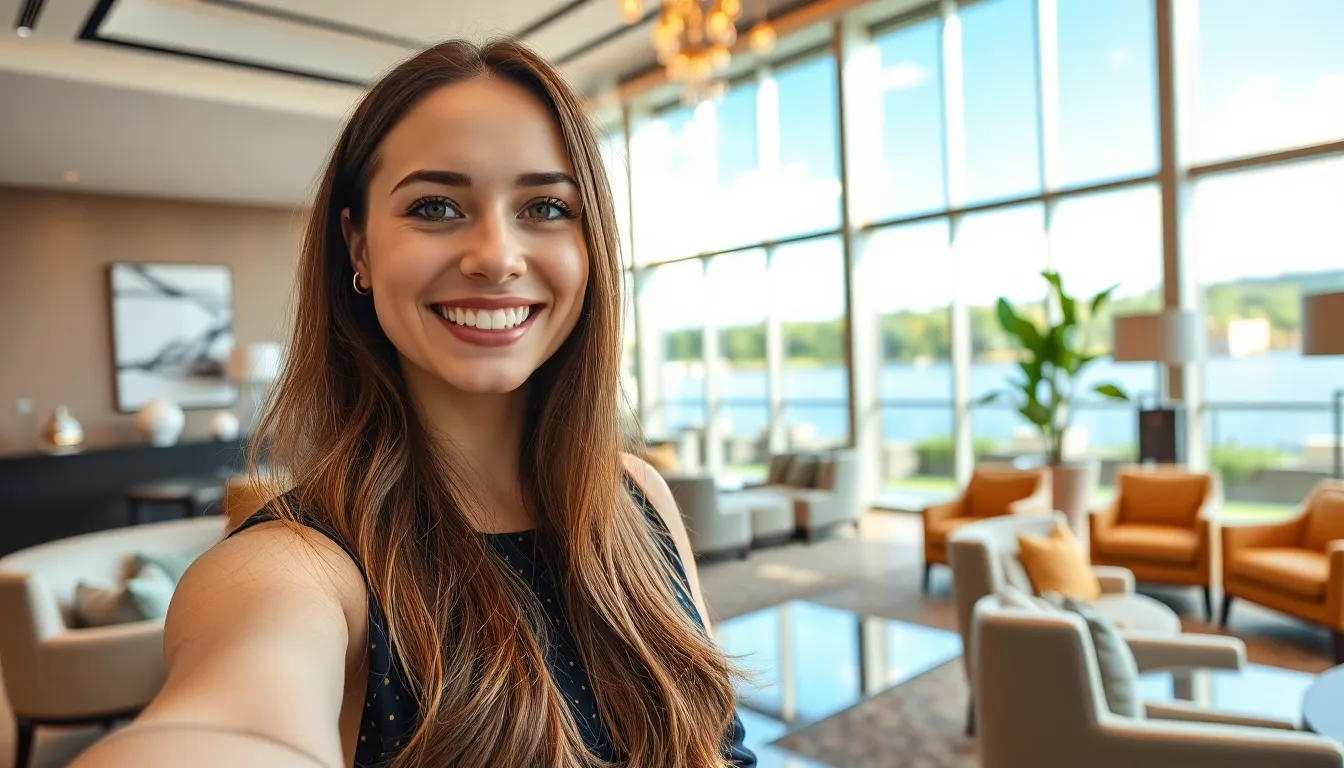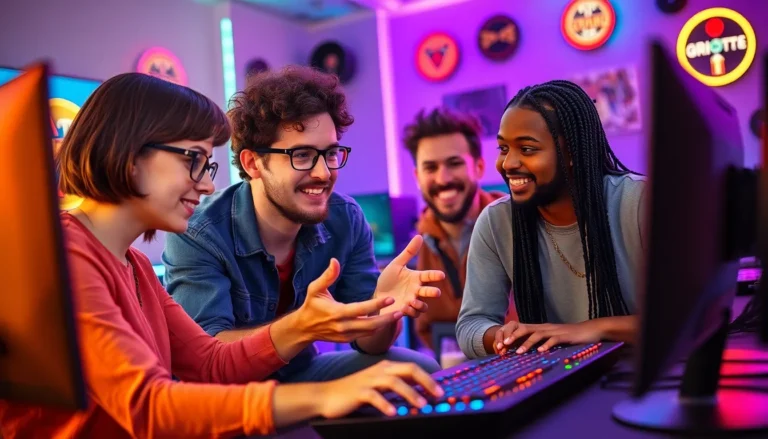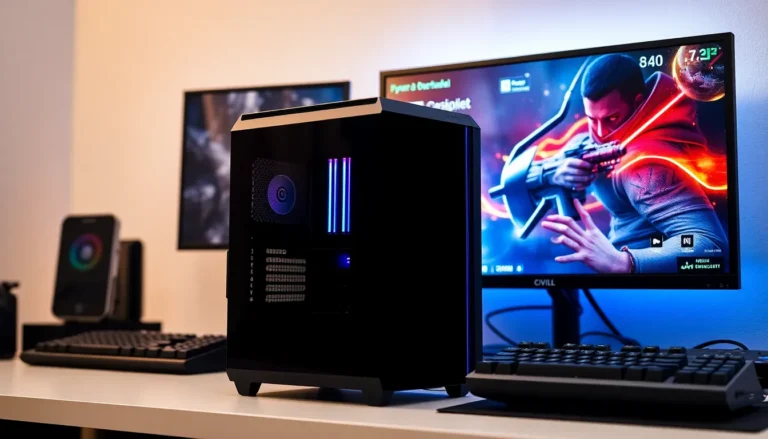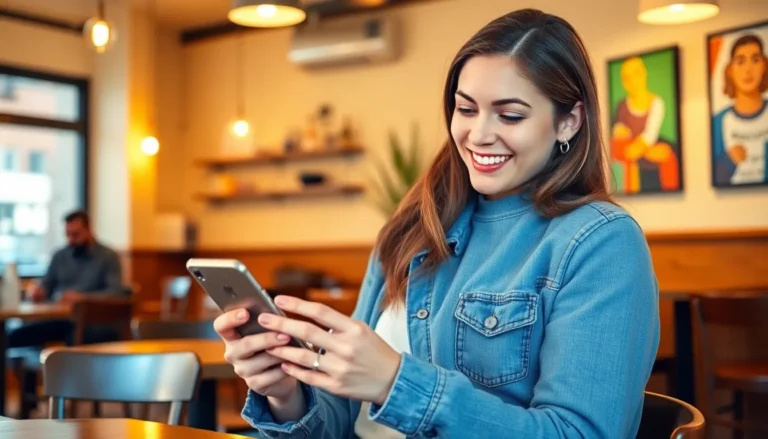Table of Contents
ToggleIn a world where scrolling through social media is as common as sipping morning coffee, hotels can’t afford to sit on the sidelines. With travelers constantly seeking the next Instagrammable moment, mastering hotel social media marketing is no longer optional—it’s essential. Imagine showcasing stunning views, mouthwatering meals, and cozy corners that make guests feel right at home, all while charming potential visitors with a dash of humor and personality.
Understanding Hotel Social Media Marketing
Social media marketing plays a crucial role in hotel promotion, allowing establishments to engage directly with travelers. By using platforms effectively, hotels can showcase their unique offerings and connect with potential guests.
Importance of Social Media for Hotels
Social media channels enhance visibility among target audiences. Engagement through compelling visuals and authentic storytelling fosters connections with potential guests. Statistics show that 70% of travelers rely on social media for travel inspiration. User-generated content, such as guest reviews and photos, further establishes credibility. Establishing an active presence enables hotels to respond quickly to inquiries, thus improving customer satisfaction. Consistent interaction also builds community and loyalty, encouraging repeat visits. In competitive markets, standing out is vital; effective social media strategies can significantly influence booking decisions.
Key Platforms for Hotel Marketing
Choosing the right platforms is essential for successful marketing. Instagram, known for its visual appeal, is ideal for sharing stunning images of accommodations and amenities. Facebook allows for community building and event promotion. Twitter serves well for real-time communication and updates, especially during peak travel times. LinkedIn is invaluable for networking with industry professionals and partners. TikTok, a rising star, attracts younger audiences with creative, short videos. Hotels should focus on platforms that align with their brand identity and target market. Leveraging each platform strategically can yield significant returns on investment in terms of engagement and bookings.
Strategies for Effective Engagement


Hotels must adopt effective engagement strategies to maximize their social media presence. Engaging content captures the attention of potential guests and compels them to interact.
Content Creation Tips
Visual storytelling plays a pivotal role in a hotel’s social media strategy. Sharing high-quality images of stunning views and inviting spaces often enhances engagement. Incorporating user-generated content, like guest photos and reviews, adds authenticity. Creating interactive posts, such as polls or questions, encourages followers to participate. Posting consistently ensures the hotel remains visible in followers’ feeds. Utilizing hashtags relevant to the industry can increase discoverability. Keeping the brand’s voice consistent across platforms fosters recognition and trust.
Building a Loyal Online Community
Encouraging interaction builds a loyal following. Responding promptly to comments and messages demonstrates attentiveness. Hosting giveaways or contests can attract new followers while rewarding existing ones. Sharing behind-the-scenes content allows followers to connect on a personal level. Creating opportunities for guests to share their experiences creates a sense of community. Highlighting local events and partnerships positions the hotel as more than just a place to stay. Regularly showcasing returning guests fosters loyalty and encourages repeat visits.
Leveraging Influencer Partnerships
Influencer partnerships can enhance hotel marketing efforts significantly. Engaging with the right influencers helps hotels reach a wider audience and create authentic content that resonates with potential guests.
Finding the Right Influencers
Identifying the appropriate influencers requires a strategic approach. Hotels should look for influencers whose audiences align with their target demographics. Considering engagement rates is vital; influencers with higher engagement generate more authentic interactions. Focusing on travel bloggers, lifestyle content creators, and local influencers can yield substantial benefits. Reviewing previous collaborations offers insights into influencer authenticity and effectiveness. Utilizing platforms like Instagram and TikTok allows hotels to find influencers who have established a strong presence.
Measuring Campaign Success
Effective measurement of influencer campaigns leads to improved strategies. Tracking metrics like engagement, reach, and conversions provides valuable insights. Utilizing unique promotional codes and dedicated landing pages can help in gathering data on bookings generated through specific influencers. Analyzing social media sentiment reveals how audiences perceive the campaign, highlighting areas for improvement. Regular reporting on these metrics enables hotels to refine their future collaborations with influencers to enhance results. Using tools designed for social media analytics aids in obtaining comprehensive data for assessment.
Analyzing Performance Metrics
Analyzing performance metrics is essential for optimizing hotel social media marketing strategies. By tracking relevant data, hotels can assess their engagement and improve their outreach.
Tools for Social Media Analytics
Hotels can leverage various tools for social media analytics to gather insights. Google Analytics offers comprehensive tracking of user behavior on hotel websites. Hootsuite provides in-depth engagement metrics across multiple platforms. Sprout Social enables hotels to monitor brand mentions and audience sentiment. Each tool supplies valuable data that aids hotels in understanding their social media impact and audience preferences.
Interpreting Data to Improve Strategy
Interpreting data effectively enhances social media strategies for hotels. Engaging posts with high likes or shares indicate content that resonates with the audience. Analyzing follower demographics reveals the most active segments to target effectively. Observing peak engagement times allows hotels to schedule posts for maximum visibility. Metrics such as click-through rates and conversion rates highlight what drives bookings. By adjusting strategies based on these insights, hotels can refine their marketing approaches and boost overall performance.
Hotel social media marketing is an essential strategy for attracting and engaging potential guests. By showcasing unique offerings and creating captivating content, hotels can build a strong online presence that resonates with travelers. Leveraging the right platforms and forming influencer partnerships amplifies visibility and credibility.
Active engagement fosters a sense of community that encourages loyalty and repeat visits. Monitoring performance metrics allows hotels to refine their strategies and enhance their marketing effectiveness. Embracing these practices not only boosts bookings but also positions hotels as preferred choices in a competitive market.




